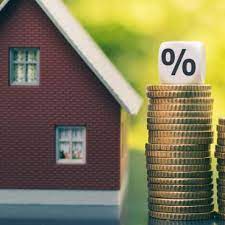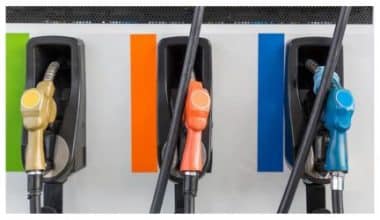Buying a home to rent out and make money is different from buying a primary residence. It is more difficult to obtain a mortgage for an investment property because of the higher interest rates and more stringent loan requirements. Investors can maximize their returns by leveraging the down payment on an investment property mortgage, the length of the repayment terms, and the interest rate. You don’t need a lot of money to get started in real estate. With so many investment mortgages available, even the average person has the potential to generate immediate cash flow. In this article, you will get to know the current mortgage rates for an investment property. However, if you want to refinance on mortgage rates for an investment property, this article will give you a clue.
Investment Property Mortgage Rates
If you want a loan to buy an investment property, you’ll need to know how much the lender is charging in interest. Your credit and financial profile, as well as the size of your down payment, will determine your interest rate. In general, the higher your credit score and the larger your down payment, the better your rate.
Due to the higher risk that an investment property poses compared to a primary residence, investment property loan rates are almost always higher than conventional loan rates, including second home loan rates. It’s more likely that you’ll default on the loan if you rely on a tenant’s rental income to cover (or contribute to) the mortgage payments on your investment property.
What Is the Current Interest Rate on an Investment Property?
Generally speaking, the interest rate on an investment loan will be.50% to.75% higher than the rate on your regular mortgage. Comparing this to the current live 30-year fixed rate on December 5, 2022, which is 5.75% (5.755% APR), the investment property mortgage rate would be roughly 6.25% to 6.5% (6.255% – 6.505% APR).
Do You Need 20% For an Investment Property?
Investment homes are not eligible for mortgage insurance, so a 20% down payment is typically required to obtain conventional financing from a lender.
How to Get a Lower Mortgage Rate on an Investment Property
#1. Have a Good Credit Score.
To be eligible for an investment property mortgage, you must have a credit score of at least 640. But a lower score will not result in a lower interest rate or a smaller down payment. Aim for a 700 or higher score.
#2. Increase Your Down Payment.
Contributing more than the minimum down payment reduces your lender’s risk by allowing you to borrow less money. You might want to think about putting down a larger deposit than the standard 20%.
#3. Reduce Your Debt
Your debt-to-income (DTI) ratio compares your monthly debt payments to your monthly gross income and should not exceed 43%. You’ll need plenty of room in your budget to cover the mortgage payment for an investment property. Although you can factor in 75 percent of the projected rental income. Don’t forget about the other costs of a rental property, such as maintenance, repairs, homeowners’ insurance, property taxes, and screening fees.
#4. Increase Your Cash Reserves
Cash reserves are current assets that remain after you have paid off your down payment and closing costs. Investment properties generally require at least six months’ worth of mortgage payments in cash reserves, but a year or more isn’t a problem. However, an investment property can be risky, so you need to keep up with your mortgage payments even if you don’t have any renters.
Can You Get a 30-Year Mortgage on an Investment Property?
Understanding mortgage rates for investment properties For instance, if the average rate for a 30-year, fixed-rate mortgage on an owner-occupied home is 3.25 percent, you might expect a 30-year investment property loan to have an interest rate between 3.75 percent and 4.125 percent.
Is It Harder to Get a Mortgage for an Investment Property?
Understanding mortgage rates for investment properties For instance, if the average rate for a 30-year, fixed-rate mortgage on an owner-occupied home is 3.25 percent, you might expect a 30-year investment property loan to have an interest rate between 3.75 percent and 4.125 percent.
Current Investment Property Mortgage Rates
Interest rates on investment properties change all the time. It’s difficult to provide a specific figure because not all lenders charge the same fees. Income, debt, cash reserves, and credit score are all factors that influence how much a lender will charge.
For investment properties, the majority of lenders typically raise standard property mortgage rates by 0.5% to 0.75%. For example, the average 30-year fixed interest rate on a primary mortgage maybe 3.92 percent. The average 15-year fixed-rate could be 2.97%.
According to current investment property mortgage rates, how much can you expect to pay? A 30-year fixed investment property mortgage may have an interest rate ranging from 4.42% to 4.67%. You can expect to pay 3.47% to 3.72% on a 15-year fixed investment loan. Again, this is entirely dependent on the lender in question, your current circumstances, and the amount of your down payment.
To see if you’re likely to get an investment loan, you should figure out how much you could pay back each month and how much rent you expect to get. Let’s say you want to buy a $300,000 home in America with a 30-year mortgage. You have a $60,000 down payment, which is 20%.
Assuming you have a good credit score and a favorable interest rate of 4.4 percent, your month-to-month payment would be $1,202 for the principal plus interest. Assuming you have an excellent credit rating, this example assumes that you will receive an interest rate that is lower than the national average. Although interest rates can and do change, you must do your research before making a decision.
Is It Better to Get a 15 Year Mortgage or a 30-Year and Pay It off Early?
If your goal is to pay off your mortgage as quickly as possible and you can afford larger monthly payments, a 15-year mortgage may be the preferable option. In contrast, the reduced monthly payment of a 30-year loan may enable you to purchase a larger home or free up funds for other financial goals.
How to Refinance Mortgage Rates for an Investment Property
If you choose to refinance mortgage rates on investment property, you can increase your cash flow, get money for new investments, or get back the money you spent fixing up a rental home. However, if you plan to refinance a rental home, investment property mortgage rates are higher than primary residence mortgage rates, and qualification requirements are more stringent. Following the five steps below may save you time and money.
#1. Decide Why You Want to Refinance Your Rental Property.
The most common reason for refinancing an investment property is to lower your monthly payment. It may also make sense to refinance a rental property if you want to buy more properties by using the equity you’ve built up. If home prices rise, you may be able to use the extra equity to purchase more income-producing properties.
You can reload cash from an “all-cash” purchase. If you used your 401(k) or stock account to pay for an investment property in cash, conventional lending guidelines allow you to replenish your funds within six months of the purchase.
You’re reducing the term to pay off your mortgage faster. By refinancing your investment property loan to a 15-year term, you will build equity faster. Higher rents may even offset the higher payment.
You must repay a hard-money loan used to purchase the house. A rental refinance can pay off a high-interest hard money loan used to buy a fixer-upper property.
#2. Gather Your Financial Documents.
Mortgage rates for investment property refinance require additional paperwork specific to the investment property you want to refinance. This is in addition to documenting your regular income and checking your credit scores. Here’s a rundown of what you’ll need and why.
- Leases on Your Property That Are Currently in Effect: Lenders will want to see the most recent lease on the property, as well as rental agreements for any other rental properties you own.
- Tax Returns for the Previous Two Years, Including Schedule E lenders: Calculate your rental income and expenses using figures from Schedule E on your tax returns. A lease may be acceptable if you have recently purchased the property. However, the lender will deduct 25% of the income to account for potential maintenance and vacancy costs.
- Homeowners’ Insurance and Property Taxes: If your current mortgage does not cover property taxes and insurance, keep a copy of your tax bill and homeowners’ insurance policy on hand.
- Mortgage Statements for the Home Being Refinanced: Your current mortgage statement should be on hand for review. You may need to contact the lender directly for a payment history on hard money loans.
- Information About the Hoa: Gather your monthly or annual HOA statements so that lenders can figure out your monthly or annual HOA payments.
- Legal Descriptions Are Subject to Change: If you’ve divided your lot or added an address to a multifamily property, make sure to notify your lender.
- Evidence of Ownership Before Refinancing: You may need to deed the property back into your name if you’ve placed it in an LLC or corporation.
- Paperwork for an All-Cash Purchase: If you withdrew money from a retirement account or borrowed against a 401(k), the lender may require documentation to complete your refinance.
#3. Find a Lender
Mortgage rates for investment properties are usually higher than rates for primary residences. It’s not uncommon to pay 50 to 87.5 basis points more than you would for a refinance of your primary residence. For example, if current 30-year mortgage rates for primary residences are 5%, you can expect a rate quote for an investment property refinance between 5% and 5.875%.
Plan to shop around more aggressively; pricing can vary greatly between lenders. Some lenders provide special rates for investment loans. Some other lenders may offer alternative or non-QM loans. This requires you to prove your rent covers the mortgage payment. But these loans carry much higher interest rates than fully-vetted mortgages.
#4. Make a Plan for the Appraisal
A home appraisal on a rental property will cost you several hundred dollars more. Lenders will want to see how your property’s rental income compares to other properties in the area, as well as how much it costs to operate.
Schedule the inspection with your tenants and explain why you’re having the house appraised. They may be concerned that you’ll sell the house and start looking for a new place to live. Remember to bring copies of your lease and receipts for recent renovations. This will help you to get credit for all the improvements you’ve made since you purchased the property.
#5. Get Ready to Close
If your credit score is low, you may have to pay higher discount points on a primary residence refinance even if you only pay 2 to 6 percent of your loan’s closing costs. Keep in mind that the extra points are intended to compensate the lender for the risk of default on an investment property as opposed to a primary residence.
It’s important to make sure that you want the loan before signing the closing papers. This is because there is no three-day right of rescission on an investment property refinancing.
Tips for Buying an Investment Property With a Down Payment
One of the requirements to consider before purchasing a rental property is the down payment for an investment property mortgage. Other important factors to consider include:
#1. Attractive Housing Markets
There are several factors that make some housing markets better than others. They include
- Job growth and population increases,
- Changes in housing prices and affordability and
- Growth in rent prices year-over-year.
#2. State Property Tax & Income Tax Rates
Property tax rates and state income tax rates can vary greatly from one location to the next. Taxes aren’t the only thing to think about when investing in real estate. Many investors overlook the benefits of investing in a location with low tax obligations. However, Florida, Nevada, South Dakota, Texas, Washington, and Wyoming are among the states where investors may be exempt from paying income taxes.
#3. Professional Property Management
Day-to-day details such as rent collection and lease enforcement, tenant communication, and repairs and maintenance are handled by the best property management companies. Well-maintained properties usually have higher occupancy rates, resulting in more stable cash flow and a higher potential ROI.
#4. Keeping Track of Income and Expenses
There are numerous tax advantages to owning an investment property, such as operating expense deductions and depreciation expenses, which can help reduce taxable net income. Stessa is used by investors to automate income and expense tracking and to claim every tax deduction available to them. When the end of the year arrives, the Stessa Tax Center assists in making tax season a breeze.
The mortgage down payment amount for an investment property varies depending on several factors. Investors are typically required to make a down payment of approximately 25% to obtain the best loan terms and interest rates. Aside from the down payment, buying a rental property typically includes closing costs ranging from 1% to 3% of the purchase price, as well as fees for due diligence such as property inspection and appraisal.
A larger down payment on an investment property may help lower the mortgage interest rate and amount of lender loan fees, in addition to having a lower monthly mortgage payment.
At What Age Should You Pay Off Your Mortgage?
“If you want to be financially free, you need to pay off all of your debt, and that includes your mortgage,” says the personal finance author and co-host of ABC’s “Shark Tank.” You should also try to pay off all of your debts, including student loans and credit card debt, by the time you are 45.
Requirements for Investment Property Mortgage Application
Mortgages and loans for investment properties, such as a non-owner-occupied mortgage, function differently than those for personal residences.
Mortgage Requirements for an Investment Property
If you have a mortgage on your primary residence, you are probably aware that most mortgage lenders no longer require a 20% down payment to obtain a loan. Lenders are more hesitant to make loans for investment properties because the risks of foreclosure and default are higher.
For a one-unit investment property, most fixed-rate mortgages require at least a 15% down payment and a credit score of 680. On two-to-four-unit investment properties, lenders require a 25% down payment and an interest rate of 620 or higher.
Preapproval
Amongst other requirements that you need for a property mortgage investment, before you start looking for houses, get preapproved for a mortgage so you know how much you can afford. A preapproval is not the same as a prequalification. A prequalification only tells you how much money you may be eligible for; it is not as powerful. A preapproval requires your financial information so that the mortgage company can provide you with a solution that is tailored to your needs. Prequalification only considers your credit and your approximate income and assets. Preapproval includes a hard credit pull as well as proof of income and assets.
Mortgage Rates for Investment Property FAQs
Are interest rates higher for second home?
Mortgage rates are higher for second homes and investment properties than they are for primary residences. Investment property rates are typically 0.5% to 0.75% higher than market rates.
What is the interest rate on investment property?
Rates on investment properties are usually at least 0.5% to 0.7% higher than standard rates. So, at today’s average rate of 5.75 % (5.76 % APR) for a primary residence, buyers can expect interest rates for a single-unit investment property to start around 6.25 % to 6.5 % (6.26-6.51% APR).
How much down payment should I put on an investment property?
At least a 15% down payment is required for a mortgage investment property, which is not a requirement when purchasing your first home.
Can you put 3 percent down on an investment property?
You cannot put down 3% on a “true” investment property. However, you can buy with one of these loans while also earning rental income from the extra units in your home.
Related Articles
- COST TO REFINANCE A MORTGAGE: All You Need to Know
- Cash-out refinance loan explained (+ requirements and tools)
- SECOND MORTGAGE: Definition, Rates, and Requirements
- PAY OFF MORTGAGE EARLY: When & How To Pay Off Mortgage Early
- Secondary Mortgage Market: Step By Step Guide On How It Works
- 203K Loan: FHA Loan Requirements for 2022






